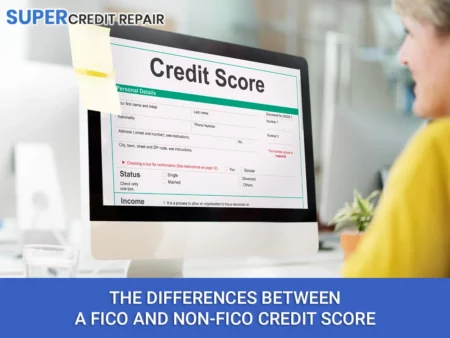 You’ve probably heard a lot about credit scores. But did you know that not all of these scores are FICO scores? There has been a misconception that the two are interchangeable, but in reality, they are not.
You’ve probably heard a lot about credit scores. But did you know that not all of these scores are FICO scores? There has been a misconception that the two are interchangeable, but in reality, they are not.
Quite a few creditors utilize FICO Scores to create a quicker, more honest, and more correct borrowing determination. Some credit scores might be extremely diverse from FICO Scores. In some situations, they may vary by as much as 100 points. When looking at your credit score, be sure it says FICO right on it. If it does not, it most likely is not. These scores, known to many as “educational” scores, can make a person over or underestimate what their creditworthiness is. Various creditors employ FICO Scores to produce judgments about approving loans, conditions, and interest charges. Odds are when one applies for a home loan, a car advance, a charge card, or a HELOC, the banker or creditor will take a peek at one’s FICO Score.
So why exactly do they do this? Creditors understand what to look for when they examine a FICO Score. FICO Scores are reliable to determine whether the individual will repay the loan as agreed upon. By constantly utilizing FICO Scores, creditors are less likely to provide loans to individuals that are at risk. Plus, one will obtain quicker and equitable access to the loan one requires and can handle.
.
FICO Scores employ extraordinary methods to compute a credit hazard founded on the data included in your credit report. While various businesses devise their loan numbers to seem as if they are a FICO Score, the math calculation the business employs may significantly differ.
Regrettably, the approaches utilized by these corporations could provide a loan score that is exceedingly separate from a FICO Score. Just a couple of points of variance may possess major repercussions on the terms and rates—possibly costing individuals hundreds of dollars or more.
What if we lived in a place where every creditor employed an entirely distinct approach in determining if one qualified for a loan? No one would understand how one could be approved with one lender and denied with another. Sounds odd, right? However, some time ago, this was what took place. With many different ways for creditors to come to a judgment about giving credit, which included details about an individual’s address, kind of occupation, and sex, individuals were accepted or rejected supported by contradictory and sometimes unjust data. But the creation of FICO Scores in 1989 assisted in streamlining the decision-making procedure for creditors and produced a borrowing operation that is more constant and fairer for many.
It makes sense to pick a FICO credit score over a non-FICO one, as you will be using the same one that most lenders are utilizing. One is also able to possess a greater understanding of monetary choices. When using FICO Scores, one is more ready to understand the right time to fill out an application due to seeing the ratings used by 90% of the most prominent financiers.
If you are in need of credit but are uncertain what your FICO credit score is, you may check with a credit bureau. If the number is too low, there are many ways to increase the credit score.
Are you living in Clearwater, FL, and interested in knowing more about credit repair? Get in touch with Super Credit Repair. They can help you raise your score to get better interest rates, saving you more money in the long run.
Picture Credit: Freepik